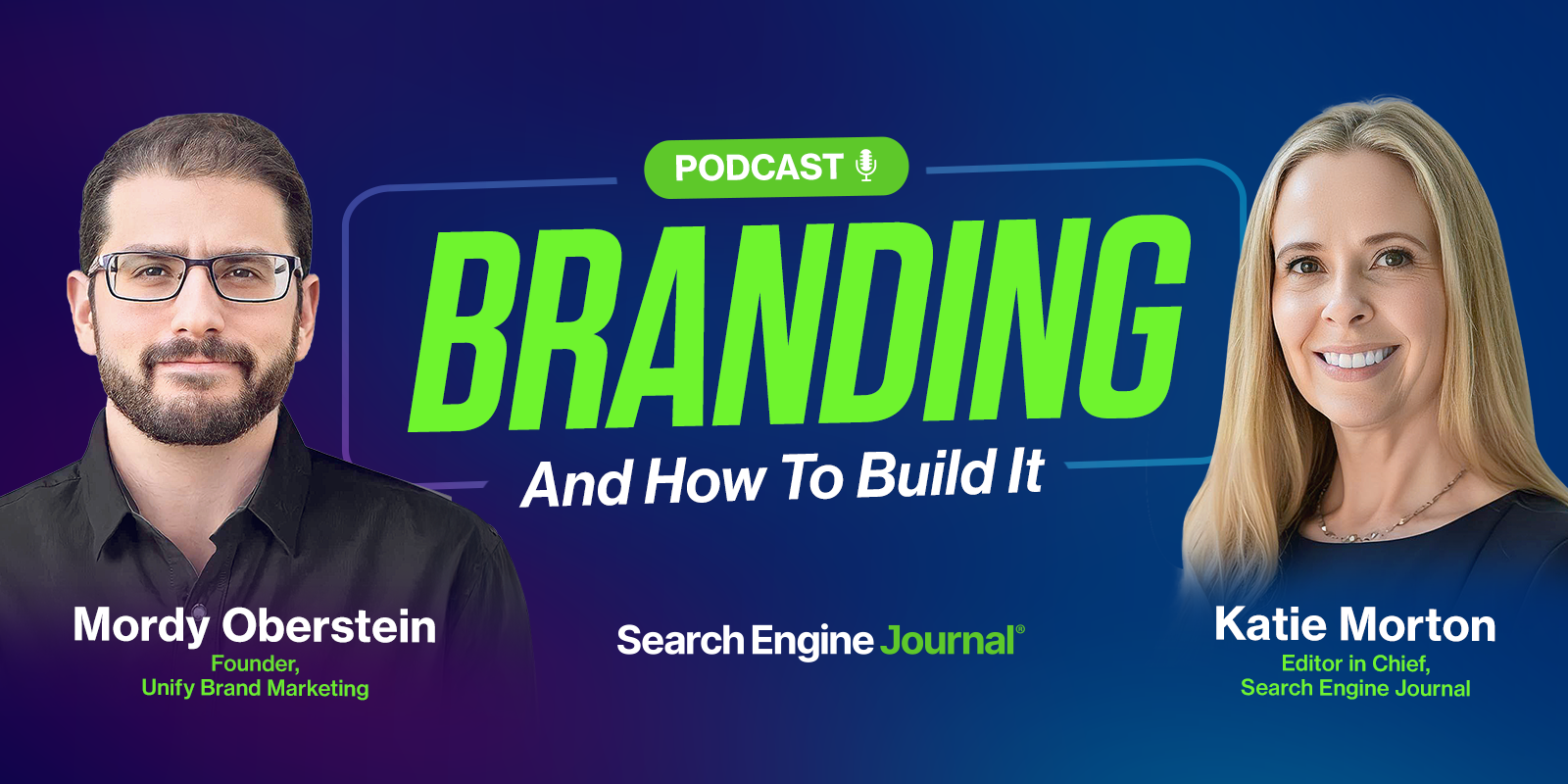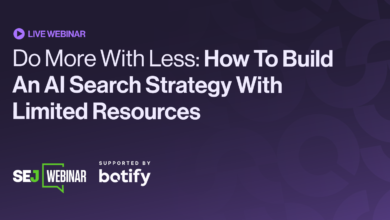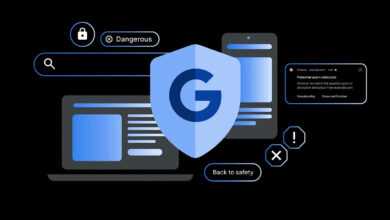Why Meaning Matters Most In Branding (And How To Build It)
Building a genuine emotional connection is crucial for forming a meaningful bond with your audience and transforming them into your most loyal customers.
In this episode, Katie Morton, editor-in-chief of Search Engine Journal, and Mordy Oberstein, founder of Unify Brand Marketing, explore why meaning is the foundation of successful brand marketing.
They break down how branding compounds over time, why emotional connections matter, and how to differentiate between surface-level and deep emotional engagement.
You can watch the full video here and find the full transcript below:
Why Meaning Matters Most In Branding – And How To Build It [Full Transcript]
Katie: Hey, everybody! It’s Katie and Mordy, and we’re here to talk about brands.
I’m Katie Morton, editor-in-chief of Search Engine Journal, and this is Mordy Oberstein, who is the founder of Unify Brand Marketing. He’s an expert on branding.
I’m so excited to be doing this series with Mordy. I know that I’m going to learn a lot, and so will you.
Mordy: I’m stoked about this. I see that; I have pure self-interest. I see a lot of performance marketing and brand marketing fusing together.
People on the performance side are talking about brand, which I’m excited to show them. Like, okay, here’s exactly why: If you’re on the performance side, you should be talking about brand.
Katie: Yeah, well, especially these days, right? So, today, we’re going to talk about – well, Mordy’s going to teach us a lot about why meaning matters most in branding and how to build it. Tell me about “meaning in brand.”
Mordy: Meaning matters most because meaning is absolutely everything for brand.
Brand is fundamentally about connection – everything starts from there. And that’s kind of why branding – it’s compounding over time, which is a little bit different than, say, performance marketing, where you’re just running PPC ads.
Brand compounds over time. Just like you don’t get married after one date (unless, I guess, you’re in [Las] Vegas) – you don’t form a bond with an audience after one activity, one asset, or one moment. Connection compounds.
It’s also very associative. Think about Nike back in the day, building up associations off the back of Michael Jordan – literally off the back of Michael Jordan – and reverse, but at the basis of all of that is meaning.
Fundamentally – I know this might sound a little bit weird – we as human beings are creatures of meaning, not utility.
Everything we do, in a weird way, is a search for meaning. The search for meaning is the search for being, the search for existing.
Wow. I know we just got super existential like two minutes in, but that’s actually good because branding is super existential. And that’s why the glue that holds the connection together is meaning. And I’ll prove it to you.
The More Meaningful You Are As a Brand, The Deeper The Connection
So, imagine you had a friend – which, for me, is hard to imagine – but every week, you and this friend went to a baseball game.
Every day (that would be impossible because they don’t play baseball every day, and they stop playing for five months), but imagine they played all year round, and you went every single day for five years.
Or, let’s say you played Dungeons & Dragons in your mom’s basement (whatever floats your boat) once a week for five years. That’s got to be a good friend to keep doing that for five years together.
But that’s nowhere near as close as you are to, let’s say, your mom – assuming that you are close. Conceptually, even if you hardly ever see your mom, you’re still far closer to her. Why?
Because your friend, in this case, helps you relax, have a good time, and connect over common interests.
Your mom, though – your mom helped shape who you are. She provided for you. She gave you life. All of that deeper stuff. And that’s far more meaningful than what your friend provides you with in this particular case.
The more meaningful, the more core to actual existence, the more connection is possible. The more core you as a brand are to your audience’s actual existence, the stronger the bond.
The more meaningful your brand is, i.e., the more it speaks to things that are core and integral to your audience and their very being, the more connection you’re going to have with them.
So, there is no brand without meaning because there’s no genuine connection without meaning. Meaning has to be at the core of your brand strategy.
And I will tell you, 99.9999% of the time, it is not.
The net outcome of that is you spend tons of time either trying to build up a brand that doesn’t work or trying to elicit a reaction, whether it be a payment, social media engagement, or whatever it is, from your audience.
It’s like moving a mountain. If you want your performance not to be like moving mountains, you need to have a brand that has meaning. If you want to push user activations, you first have to connect in a meaningful way.
Because what you’re basically asking a user to do when you ask them to convert or whatever it is, you’re basically asking them to give you a loan for, I don’t know, $500, whatever you’re charging for your product.
You’re asking them to do it for a total stranger. When was the last time you opened your wallet for a total stranger? I mean, you should – it’s good to be generous – but this is business, not charity.
I know, but I do want to say there are practical things to do here.
I know that was very conceptual, but I did that on purpose because brands should be conceptual. I didn’t want to start with the pragmatics of it, but there are actual practical things you could be doing.
So, just to run through a few of them:
Takeaway 1: Think Micro Level
One thing that helps me is to think about it at the micro level.
When you start talking about connection, audience, creating relationships, and getting people to be motivated, when you keep it at the micro level, like between you and a friend or you and another person, it’s really easy to see how that works.
But for some reason, when we zoom out to brands and companies, we start to lose that basic sense of reality, and those things become difficult. So, fine – keep it at the micro level.
What works for actual relationships, identity, and resonance between two people also works at the macro level. Extrapolate from there.
Takeaway 2: Differentiate Between Surface-Level Emotions And Core, Integral Emotions
The second thing – and I probably should have started with this because it’s more important – is to differentiate between surface-level emotions and core, integral emotions.
You have to be honest about that.
For example, fun is a very surface-level emotion, whereas things like connection or overcoming struggle are much deeper and more meaningful.
So, you need to be honest with yourself and understand what kind of emotional targeting your brand identity actually goes after. If it’s surface-level, don’t do that.
To help you do that, you can use a rubric to break down those emotional experiences.
If you’re trying to elicit an emotional reaction from an audience, targeting an emotional state of mind rather, with an audience, ask yourself: Is the emotional state you’re targeting surface-level? Neutral? Mildly deep? Does it have significant resonance? Is it deep or dripping with meaning? Or is it existential – does it produce a visceral reaction?
Like when you’re watching a movie – mine is Field of Dreams. When the dad and the kid play catch, you just can’t help yourself from crying.
If your brand can produce that kind of emotional connection, you’ve hit the mark.
Takeaway 3: Lean Into What’s Meaningful To You
The third thing is to lean into what’s meaningful to you.
It’s a two-way street. You can’t just target the audience – it’s a relationship.
So, what’s meaningful to you matters also. You can’t fake it till you make it. You have to understand who you are, what’s meaningful to you, and how that fits into the audience’s context.
Takeaway 4: Tap Into Who You Already Are
You should think about this more as tapping – I know we say building brand, but it’s more like tapping – into yourself, and understanding and really being honest with who you are, what you are, and what you’re trying to do, versus building something.
It’s more of tapping into something that’s already there – super helpful.
Katie: That was awesome. That was so profound of me. That’s awesome, Mordy. Cool.
Mordy: Like, hey, Paul, I interviewed Paul McCartney. Remember when he was in the Beatles? Yeah, that was awesome, man. I’m dating myself with that skit, by the way.
Q&A
Is It Universally Applicable? How Do You Apply It To An Unemotional Product Or Service?
Katie: I have a question for you. Is this universally applicable? Let’s say you are selling Mordy’s Widgets and Shakes, and you’re a company that sells cogs for wheels and milkshakes.
Mordy: Strong brand identity right there – cogs and milkshakes.
Katie: Right? Yeah. So, but, you know, milkshakes – people emotionally eat. And so, like, that’s an easier one, obviously, to connect with people on.
But cogs are really, like, they’re pretty – you know, like, the clockwork thing might be pretty unemotional.
So, would you appeal to people’s need for control or accuracy or precision?
Like, how do you apply this to something that might seem like an unemotional product or service?
Mordy: So, people ask me this kind of, like, all the time. What I just outlined is a process, and that process is universal. So, I’m not talking like – it always will look slightly different when it’s applied.
But the thing with brand, maybe different than maybe other disciplines, is that it’s all about process, and the process should be relatively universal.
So, let’s say you’re talking about widgets. First off, there’s a reason why you went into that business.
There’s a reason why you think it’s important that people have this widget.
There’s a reason why – there’s an impact that you’re trying to make on people’s lives. There’s a story there, right? There’s meaning in that. If there wasn’t meaning to that, why are you doing it?
Katie: Right? Even if it’s something like efficiency or cost savings.
Mordy: Yeah, no – like, just doing something, right? And then, but I would always – like, if it’s an efficiency – like, people will stop. Why is that efficiency important to that person? Like, what’s going on? Imagine it’s, like, a busy parent, and you’re making their lives more efficient.
So, we say, “Our product makes it more efficient.” I wouldn’t stop there. Right? Go to the next: What does that efficiency look like to that person? And why does it matter? Yeah.
Katie: How would that touch them emotionally – to feel like their life works, that they have a car that they can trust?
Mordy: I feel like a cog in a machine.
Katie: Don’t we all at times, Mordy? Don’t we all?
How Do You Bring Messaging To A Deeper Level?
Katie: So, and then, the other question I actually wanted to ask you is this: So, what if – let’s go back to the ice cream. What if it just feels surfac-y and it doesn’t feel deep? How do you bring it to that deeper level?
Like, as opposed to, like, you know, “I had a bad day, and I want to eat a pint because I know it’ll feel better.” It’s very surfac-y. But, like, what’s under that? How do you go deeper?
Mordy: So, personally, in that particular case, like, what’s going on is making you want to eat like that? Like, there’s clearly something going on.
Now, you know, as someone who would sit down with a pint, this inevitably pops up. I’ll tell you where it pops up a lot – where you have, like, a year in the vertical – I’ll say digital marketing agencies.
We all kind of sound the same. Sorry. We offer PPC and SEO, and, like, well, what else do we say?
So, again, it’s all about tapping in. If you can tap into why digital marketing is meaningful to you, like I said before, it’s a two-way street.
There has to be part of you involved in this connection – the meeting of two identities: your audience’s identity and your identity.
So, if you were like, “Oh, tap into yourself. Why did you get into digital marketing? Why do you think it’s important for people to have this? What do you think it does for them?”
Again, all of that motivation and reasoning and story behind what you did and how you got here – there’s usually an underlying level of meaning in there that you just haven’t sat down and really gotten in touch with.
Think of it like therapy for your brand.
Katie: Yeah, I really like that, Mordy.
Wrapping Up: What’s Next?
Katie: So, I think that in future episodes, we will get more into things like, “So, how does that translate into messaging or calls to action?” Or, you know, all the various things that brands can help with.
So, just teasing that a little bit – there’s definitely more to come.
Mordy: We’re going to get into a lot of, “How does brand actually impact your performance?” I’ll give you a spoiler alert: It makes it a lot cheaper.
Katie: Nice. All right. All right, Mordy, do you have any final thoughts for today, or should we wrap it up?
Mordy: Oh, no, I’m saving my thoughts for the next episode. Tease.
Katie: Yeah. No, all good things. All right. Well, that’s it for today. Have a good one. I am Katie Morton. This is Mordy Oberstein, signing out. Bye.
Mordy: Bye.
More Resources:
Featured Image: Paulo Bobita/Search Engine Journal




